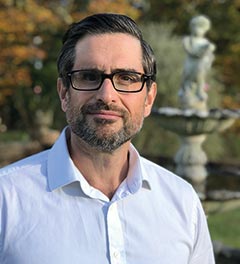
2023 was a year of planned consolidation for WIT, and a reduced level of activity, while we tried to assess whether conferences of the type that WIT promoted in the pre-Covid era would attract viable numbers of delegates in future. As I mentioned in my message last year, there was a concern that some funders of delegates might prefer to continue to focus on virtual events for economic reasons. In order to evaluate the level of interest, WIT organised two physical conferences in Lisbon in September 2023. I am pleased to say these were a success although the majority of the bookings were made rather later than we would have liked, following the trend we have experienced in recent years.
The level of interest in the 2023 conferences and the positive feedback from delegates has given us confidence that WIT’s conference programme is still relevant. Consequently, arrangements have been made to hold three conferences in Seville in September 2024 and planning for a larger number of events in 2025, in multiple locations, is well underway. We are indebted to our Academic Director, Prof Stavros Syngellakis, for his hard work and dedication in keeping the WIT conference programme alive and we are optimistic that it will gradually expand in future years.
A number of short courses were organised in 2023 and these were mainly virtual events. This format appears to work well for short courses enabling a good level of interaction between presenters and delegates. Several short courses are already planned for 2024, adopting a mix of both virtual and in-person formats.
WIT was created by an individual with drive and ambition and it has been nurtured by a group of talented academics, mostly of a similar generation, who have made an important contribution to its success. For the future, if WIT is to remain relevant, we will need to attract supporters of a younger generation who will bring with them fresh ideas and experiences. WIT was founded with the aim of helping to bridge the knowledge gap between academia and industry, a need which continues to exist. I would be pleased to hear from anyone who feels they could make a significant contribution to WIT’s future activities.
Alexander Brebbia
Chairman
Ashurst Lodge

 Wessex Institute
Wessex Institute